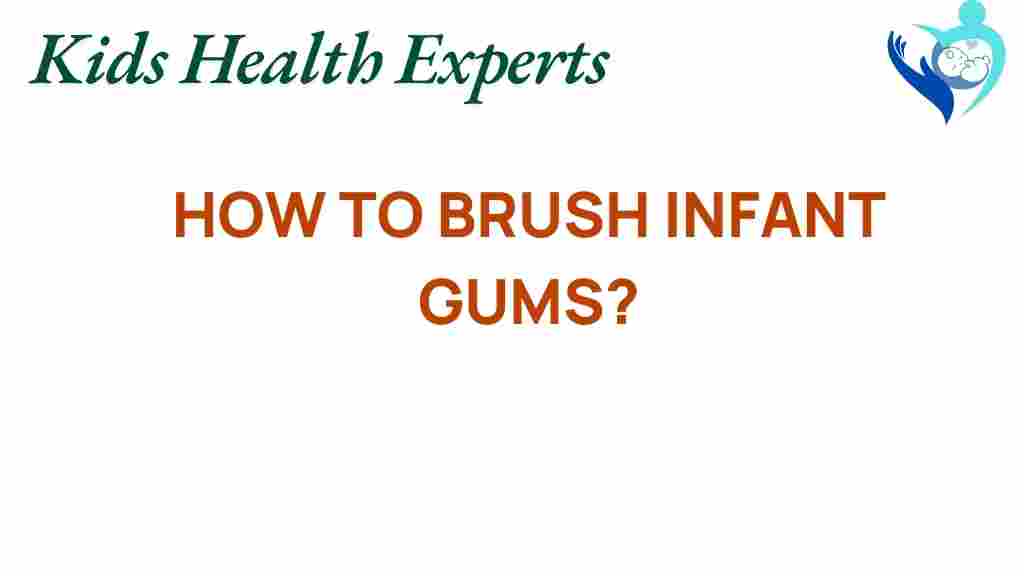Mastering the Art of Infant Gum Care
As a parent, ensuring your child’s health and well-being is a top priority. One crucial aspect of this is infant gum care, which lays the foundation for strong teeth and optimal dental health as your baby grows. Understanding the importance of early dental care can help you establish a routine that promotes good oral hygiene and supports your child’s overall development. In this guide, we will explore effective infant gum care practices, tips for maintaining gum health, and the significance of pediatric dentistry.
The Importance of Infant Gum Care
Infant gum care is essential for several reasons:
- Prevention of Cavities: Even before baby teeth emerge, bacteria can affect the gums, leading to potential oral health issues.
- Preparation for Teeth: Healthy gums provide a solid foundation for the development of baby teeth, which typically appear around six months of age.
- Establishing Habits: Introducing a routine for oral hygiene early helps children develop good habits that can last a lifetime.
Step-by-Step Guide to Infant Gum Care
Now that we understand the significance of infant gum care, let’s delve into a step-by-step guide to maintaining your baby’s oral hygiene.
1. Start Early
Begin gum care even before your baby’s first tooth erupts. This practice helps familiarize your child with oral hygiene routines.
- Use a soft, damp cloth to gently wipe your baby’s gums after feedings.
- Focus on cleaning the area where teeth will eventually emerge.
2. Choose the Right Tools
As your baby grows, you may want to invest in specific tools for infant gum care:
- Finger Brushes: These are soft, silicone brushes that fit over your finger and are gentle on your baby’s gums.
- Soft Baby Toothbrushes: Once teeth appear, use a toothbrush with soft bristles designed for infants.
3. Use Non-Fluoride Toothpaste
When your child’s first teeth come in, it’s essential to use a toothpaste that is safe for infants:
- Choose a non-fluoride toothpaste until your child learns to spit it out, usually around age 2-3.
- This helps avoid the risk of dental fluorosis, a condition caused by excessive fluoride exposure in young children.
4. Establish a Routine
Consistency is key in infant gum care. Aim to establish a daily routine:
- Brush your baby’s gums twice a day, preferably morning and night.
- Make it a fun activity by singing songs or using a favorite toy to keep them engaged.
5. Monitor Diet for Optimal Gum Health
A healthy diet is crucial for maintaining good oral hygiene:
- Avoid sugary drinks and snacks, which can lead to tooth decay.
- Encourage a balanced diet rich in fruits, vegetables, and whole grains.
6. Schedule Pediatric Dentistry Visits
Regular check-ups with a pediatric dentist are vital for monitoring your child’s dental health:
- Plan the first dental visit by the time your child turns one or after their first tooth erupts.
- These visits help catch any potential issues early on and provide guidance on proper gum care.
Troubleshooting Common Issues
Even with the best practices, you may encounter some common issues regarding infant gum care:
Teething Discomfort
Teething can cause discomfort for babies. Here are some tips to ease their pain:
- Use a clean, cold washcloth for them to chew on.
- Offer teething rings that are safe for infants.
- Gently massage their gums with your clean finger.
Gum Inflammation
If you notice swelling or redness in your baby’s gums, it may signal inflammation:
- Continue regular cleaning, as this can help reduce inflammation.
- Consult your pediatric dentist if symptoms persist or worsen.
Reluctance to Brush
Some infants may resist having their gums brushed:
- Try different times of day to find when your baby is most receptive.
- Incorporate play, such as letting them hold the toothbrush or choosing a fun character brush.
Conclusion
Mastering infant gum care is an essential part of parenting that sets the stage for your child’s dental health. Through consistent practices, a routine, and regular visits to a pediatric dentist, you can ensure your little one’s gums and future teeth remain healthy. Remember, early dental care not only promotes gum health but also contributes significantly to your child’s overall development. For more parenting tips and resources on child development, feel free to explore our website.
By prioritizing oral hygiene from the very beginning, you empower your child with a strong foundation for a lifetime of healthy smiles.
This article is in the category Care and created by KidsHealthExperts Team
